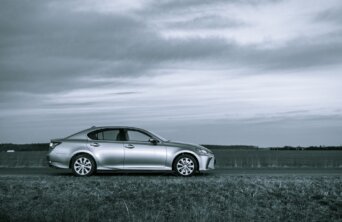- About
- Topics
- Picks
- Audio
- Story
- In-Depth
- Opinion
- News
- Donate
- Signup for our newsletterOur Editors' Best Picks.Send
Read, Debate: Engage.
| topic: | Renewables |
|---|---|
| located: | China |
| editor: | Wincy Ng |
On 25 May, the Chinese automaker BYD, which holds the top sales spot for new energy vehicles, announced the release of a new model. However, on the same day, its competitor, Great Wall Motor, reported that their two top-selling models failed to comply with environmental standards.
Great Wall Motor submitted documents to the Chinese authorities, including to the Ministry of Ecology and Environment, to address the issue.
The affected models are plug-in hybrid electric vehicles (PHEVs) that rely on both gasoline and electricity as fuel sources. Great Wall Motor released a statement alleging that BYD's Qin Plus and Song Plus models were equipped with non-pressurised fuel tanks, which may cause the liquid to evaporate more quickly than with a pressurised tank.
In November of last year, BYD's electric models dominated the top ten list of best-selling electric vehicles in China, with the Song Plus claiming the top spot and selling over 64,000 units (including 57,146 PHEV models), according to EV Volumes, a database of global sales statistics. But given recent allegations that BYD may have used non-pressurised fuel tanks to cut production costs, concerns are arising among the public as to whether the top Chinese automaker violated emission regulations.
"We firmly oppose any kind of unfair competitive behaviour and reserve the right to sue," BYD stated, refuting the accusation by pointing out that the test was carried out by its competitor Great Wall Motor and therefore doubting the validity of its result.
BYD has faced complaints of pollution before. In 2022, its factory in Changsha, China was suspected of emitting excessive pollutants, resulting in hundreds of nearby children experiencing nosebleeds. Residents gathered at the BYD factory, attributing the "pungent smell" over the last two months as the main cause. Although the company initially denied the allegations, it eventually agreed to reduce emissions.
But despite BYD being identified as one of the key companies under environmental supervision in 2019, there has been no announcement of investigation results from the local government.
These incidents have raised concerns over China's ability to control its emissions. Additionally, recent analysis has revealed that China's CO2 emissions increased by 4 percent in the first quarter of 2023, surpassing the previous peak set in the first quarter of 2021.
It remains uncertain when the growth of emissions will slow down. Experts suggest that the increase in pollution was driven by the economic recovery following the end of China's long zero-Covid policy. According to the Centre for Research on Energy and Clean Air (CREA), "The rapid expansion in low-carbon energy, if sustained, could enable emissions to peak and enter structural decline, once the post-Covid recovery has played out."
